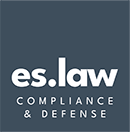Process after receipt of a whistleblower tip
After receiving a report, the internal office must comply with specific requirements. First and foremost, a written confirmation of the tip must be sent to the whistleblower (Sec 9 para 1 Whistleblower Protection Act) without delay, but within seven days at the latest. In accordance with Sec 13 para 6 Whistleblower Protection Act, every report received must be checked for validity. A whistleblower tip must not be rejected frivolously due to a lack of validity. Instead, the internal or external body is obligated to investigate further if there is a realistic possibility that the allegations contained in the whistleblower tip may be correct.
Assessment of a whistleblower tip and follow-up measures
Reports of serious legal violations must be submitted to the company management. The company management must only be informed of the information received, but not of the identity of the whistleblower, as this must be treated confidentially. In accordance with Sec 13 para 3 Whistleblower Protection Act, the company management can entrust the internal office with follow-up measures or instruct a separate body to do so.
Follow-up measures at companies generally include measures that are taken as part of an internal investigation. This includes checking the validity of the whistleblower tip, internal inquiries, investigations or the initiation, implementation or termination of proceedings. The appropriateness of such follow-up measures must always be assessed on the basis of objective criteria and varies depending on the case and, among other things, on the type of the violated regulation.
Adequate resources are required for internal investigations. In addition, the time factor plays an important role in internal investigations. Therefore, if necessary, investigations should be initiated as rapidly as possible and evidence should be secured as quickly as possible in order to reduce the risk of possible cover-ups and concealment.
In addition to securing and analyzing documents and data, employee interviews are often necessary. The internal unit must also ask the whistleblower for further information if this is necessary for the assessment of the report. Once the facts of the case have been clarified, appropriate legal measures can be initiated. These include, for example, an adjustment to the compliance management system, civil action or the filing of a criminal complaint including private party participation.
Communication after three months
Pursuant to Sec 13 para 9 Whistleblower Protection Act, the internal office is obligated to inform the whistleblower within three months after receiving the whistleblower tip, of the follow-up measures that have been taken or are planned, or why the report is not being followed up. No details of the follow-up measures are to be disclosed, as this could jeopardize further proceedings, especially in ongoing investigations, and is also not permitted for data protection reasons. Nevertheless, the notification to the whistleblower should contain at least a certain amount of (abstract) substance in order to avoid the whistleblower turning to external bodies out of frustration or even publishing a whistleblower hint. If necessary, legal advice should be sought in order to avoid legal stumbling blocks.


